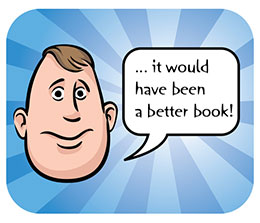 The occupational hazard of being a writer is criticism. It will come at you whether you share your work with the whole world, or only your best friend. It can be supportive, painful, or stupid. It can be very insightful, or woefully ignorant.
The occupational hazard of being a writer is criticism. It will come at you whether you share your work with the whole world, or only your best friend. It can be supportive, painful, or stupid. It can be very insightful, or woefully ignorant.
In all my years of publishing I have never had a book about which somebody hasn’t said something negative. Indeed, an English professor at Brown University once told me that criticism was more important than the work itself. A reviewer of True Confessions of Charlotte Doyle wrote that “if [Avi] had worked harder it would have been a better book.” A recent review said that writing in the first person removes all suspense from the story. (Too bad for you, Moby Dick, Great Expectations, etc., etc., etc., … ). The late Kenneth Tynan once wrote, “A critic is a man who knows the way but can’t drive the car.” That said, knowing the way is important.
However painful, one can learn from criticism. I think it was the actor, Laurence Olivier who once said something in the nature of, “If you want to improve your art, never read the good reviews, only the negative ones.” What I have learned is that the best thing one can do with criticism is listen, and never argue. (I’ve never met a critic who accepted criticism of their criticism.) Still, if you argue with a critic you don’t hear what may be useful suggestions, and you become trapped in your own vision of what you have done. Nothing is harder than being a critic of your own work. Sorry, a writer needs those extra eyes.